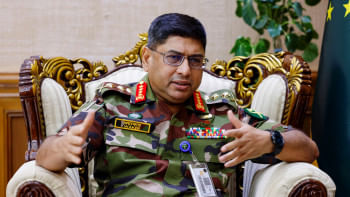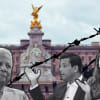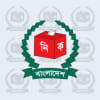Reforms vital before the election is held

For some time now, we have observed our head of government, politicians, and high-ranking officials often favouring foreign media outlets for interviews instead of engaging with national media. As a result, Bangladeshi citizens are often forced to rely on international sources for information that should be readily available domestically. This practice, we believe, should change as we work toward building a new and different kind of Bangladesh.
Continuing this trend, Bangladesh's Chief of Army Staff General Waker-uz-Zaman recently gave an interview to Reuters, where he stated that he fully supports the interim government, led by Chief Adviser Muhammad Yunus, in its mission to implement key reforms following the ouster of former Prime Minister Sheikh Hasina. This is encouraging news, as the country is clearly in desperate need of reforms that can hopefully prevent the brutal authoritarianism of the former government from being repeated. However, the army chief also mentioned that he believes these reforms should lead to elections within the next 18 months.
Previously, politicians, advisers to the interim government, and others have spoken about the need for reforms before elections are held, but no specific timeframe was proposed by anyone in the government until now. This, of course, raises the question whether the government will face any limitations regarding how much time they will be given to implement these reforms.
Given the questions that could arise as a result of the army chief's statement, we must ask, wouldn't it have been more appropriate for the chief adviser himself to address the issue of the interim government's timeframe? Since the government has not officially announced a specific timeline, the army chief's remarks could create confusion. In light of this, we believe that such a statement should have been avoided until the chief adviser directly addressed the matter.
The army chief also proposed placing the defence ministry under the office of the president. We assume he suggested this since politicians have previously tried to use the army for political reasons, a practice that, as he himself admitted, risks politicising the defence force. Such politicisation can only harm the professionalism of the army as well as our national interests. Therefore, we fully agree with him that the army must remain a professional force, free of political influence. We believe the same must be done with the DGFI, which has also been subject to political misuse. Another encouraging statement by the army chief was his commitment to ensuring that any army personnel found guilty of human rights violations would be held accountable. This would help ensure that our army remains a force the people can trust and respect.
Finally, we commend the army for supporting the interim government and for preventing further bloodshed during the final days of the brutal Hasina-led government. This really proved its pro-people stance, for which it deserves our appreciation. We hope that the army will always stand by the people of Bangladesh and safeguard our national interests, and never be used as a political weapon under any circumstances.

 For all latest news, follow The Daily Star's Google News channel.
For all latest news, follow The Daily Star's Google News channel. 









Comments